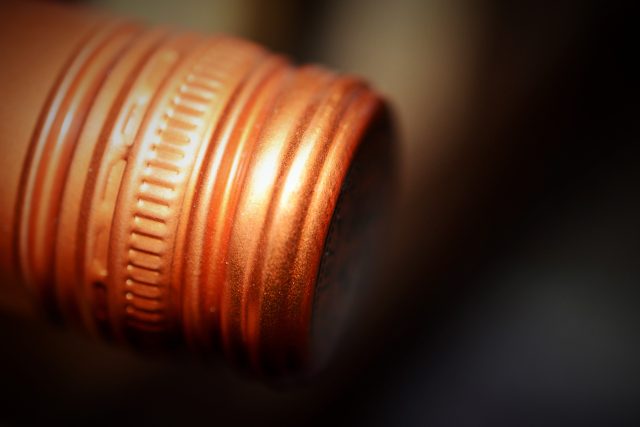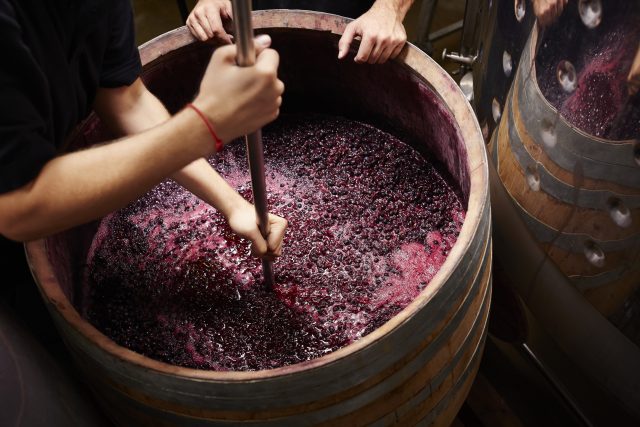This website uses cookies so that we can provide you with the best user experience possible. Cookie information is stored in your browser and performs functions such as recognising you when you return to our website and helping our team to understand which sections of the website you find most interesting and useful.
Will we start to see more fine wines under screwcap?
As groundbreaking research into closure compatibility continues, more fine wine producers could make the leap from cork to screwcap. Sarah Neish investigates.

A new body of research carried out by closures firms reveals that different wine styles are strongly suited to different closure types, depending on the phenolic composition of the wine.
With each wine expression being as unique as a fingerprint, so is its closure requirement.
The findings could call into question any notions of superiority/inferiority when it comes to closure type. For example, the idea that all fine or aged wines must be sealed under cork. Instead, in future the focus is likely to pivot to which closure is best suited for a particular expression of wine and its chemical make-up.
Several closures companies have told db they are investing in research which analyses the chemical compounds in wine to ascertain how different expressions perform under the influence of different closures.
Early results suggest that not all fine wines will benefit most from cork, just as not all entry-level wines will benefit most from screwcap. Similarly, those producers who have a preference for natural cork, may be surprised to discover that for a particular expression of their wine, a micro-agglomerated or technical cork might give better results.
Theoretically, the research suggests, the ideal closure type for a wine could vary from vintage to vintage, depending on the differing proportions of grape varieties used within a blend, or tweaks made to the winemaking process that year.

A great leveller
The findings may go some way to changing attitudes among the fine wine category towards the use of screwcaps.
If the scientific evidence proves that a screwcap would give the best result for your wine (whether that wine is priced at £8 or £80), winemakers would be remiss to ignore that.
“The decision now is really about what is more beneficial for the wine, what’s going to emphasise the organoleptic properties of the product and what the best way is to preserve the aromas for that particular expression,” explains Catherine Fontinha, head of marketing for Zurich-based closures firm Amcor.
Fontinha is quietly confident that screwcaps will find a home in fine wine.
“We believe there is going to be an acceleration in the conversion from cork to screwcap,” she says. “Brands of all kinds are starting to realise that screwcaps are a convenient option for their end customers, with a great recyclability aspect. And when it comes to producing a wine on the side of ‘freshness’, screwcaps are a great option.”
Isabelle Gruard, group marketing director for Crealis, which makes foils and wire hoods for Champagne and sparkling wine bottles, as well as various closures made from tin, plastic and cork, believes that the use of screwcaps for high-end wines is still evolving.
“There are producers who already adopt screwcap for fine wines, but they are not the majority,” she tells db.
“At the moment, this type of closure is still associated with fast-moving wines with no need for ageing. So, necessarily, screwcaps are associated with young, easy-drinking wines. Having said that, I don’t feel we can exclude the possibility that in the future, and in certain countries, the use of screwcaps with fine wine will grow more and more.”
Emerging fine wine producers
Speaking to the drinks business, Ina Ivanova, head of sales for Bulgarian closures company Herti, which makes two billion aluminium and composite closures per year, explains that emerging fine wine brands may be more inclined to consider screwcap than established names.
“New wines are easier to introduce with a screwcap because the product is still unknown in the market,” she says, adding that the screwcap sector has “reoriented itself” to cater to the diversity and number of bottle sizes and shapes available, including larger formats.
“The screwcap will continue to be imposed not only on mid-range wines, but also on more expensive ones,” Ivanova says, adding that the clear global growth in screwcap sales proves that “more winemakers are preferring to use screwcaps, and not only for the low- and-mid-priced wines, but also for more elite expressions.”
Once upon a time, Ivanova says, winemakers suffered from scruples that fine wines should only be closed with corks, but times and traditions change.
“A new generation is coming that wants to go beyond tradition. The consumer is increasingly looking for the comfort of opening wine without a special device, at any time and in any place, regardless of whether the wine is fine or not.”
To learn more about the latest research into closure compatibility read db’s report: Is it time to let wine style decide which closure to use?

